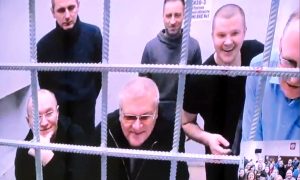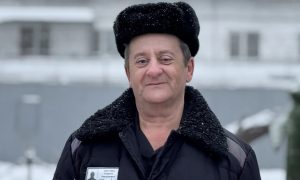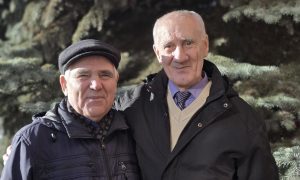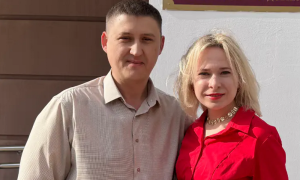According to the Monitoring review of the Crimean Human Rights Group (CHRG) from July to September 2025, at least 14 Jehovah’s Witnesses have been convicted for their faith in the temporarily occupied Crimea.
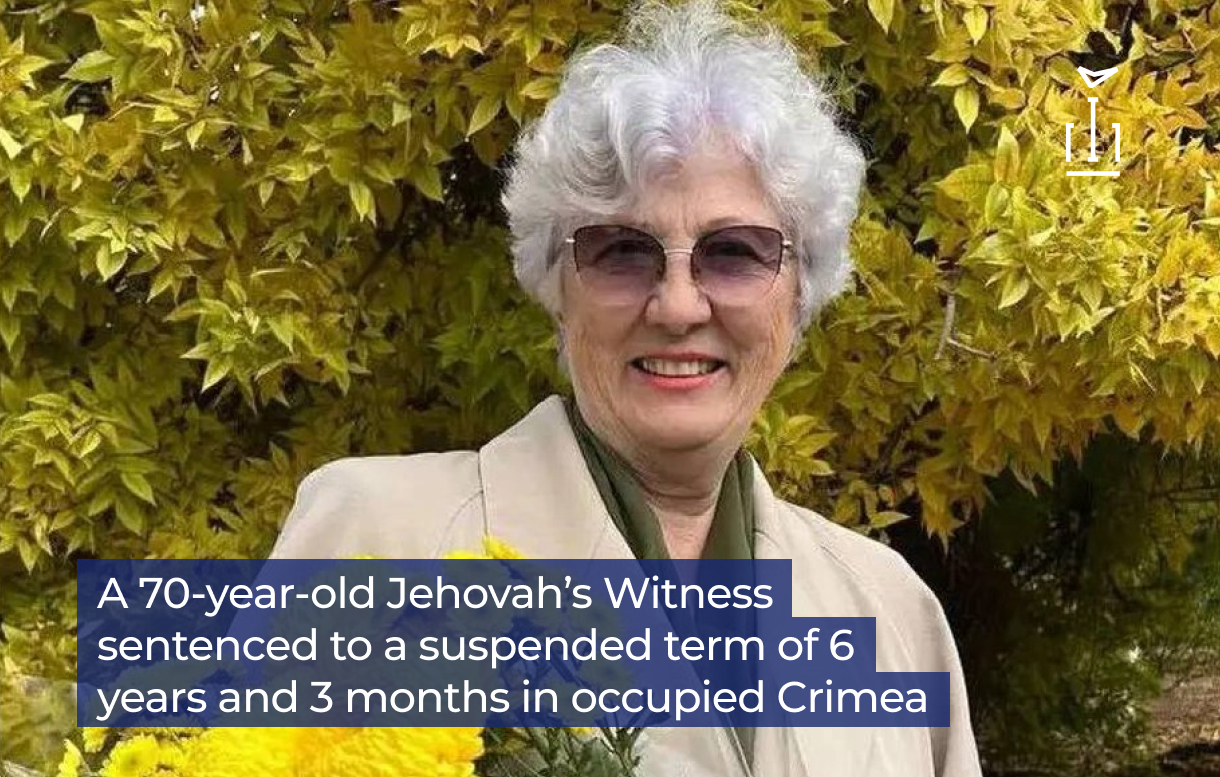
On August 27, 2025, officials of the occupying illegitimate “Investigative Committee” conducted 11 searches of Jehovah’s Witnesses in Crimea. Authorities detained Volodymyr Chertov, a 52-year-old resident of Yalta, and charged him with “managing an extremist organization’s actions.” After spending two days in a pre-trial detention center, authorities released him under restrictions banning certain activities.
On September 8, 2025, illegitimate “judge” Elena Nikolayeva of the “Dzhankoi District Court” sentenced Viktor Urs, a Jehovah’s Witnesses member from Dzhankoi, to six years in a penal colony. The court found him guilty of “managing an extremist organization’s actions” under Article 282.2-1 of the Criminal Code of the Russian Federation.
The Jehovah’s Witnesses organization claims that 32 of its members have become victims of criminal persecution in Crimea over the past seven years.
Earlier, Crimea Platform reported that on October 17, 2025, the Russia-controlled “Rozdolne District Court” sentenced 70-year-old Tamara Brattseva, finding her guilty of “organizing the activities of an extremist organization” — the religious community of Jehovah’s Witnesses. The woman received a suspended sentence of six years and three months in prison.
In August 2024, searches were conducted in the homes of Jehovah’s Witnesses in Rozdolne, Senokosne, and Alushta, during which they seized electronic devices and personal notes. The occupation authorities demanded a real prison sentence of six years and four months for Tamara Brattseva, which the defendant’s lawyer described as a moral collapse, since the woman’s “guilt” consisted of praying, reading the Bible, and striving to live according to her conscience.
Crimea Platform stated that this verdict represents “another example of the systematic violations of human rights and freedom of religion in the temporarily occupied territories of Ukraine”. It pointed out that the occupation administration continues its repressive policy against local residents, equating religious practice with “extremism.”
Ukraine calls on the international community to strongly condemn these actions, demand an immediate end to persecution, and ensure the release of all persons unlawfully detained on religious grounds.
In 2017, Russia’s Supreme Court recognized Jehovah’s Witnesses as an extremist organization and banned its activities across the Russian Federation. Jehovah’s Witnesses operate legally in all territories of Ukraine, including the Autonomous Republic of Crimea. Russia, in violation of the Geneva Convention, applies its own criminal legislation to the temporarily occupied territories of Ukraine.
Since 2018, Russia has persecuted Jehovah’s Witnesses through criminal cases. In 2020, illegitimate “courts” in the temporarily occupied Crimea handed down the first prison sentences to members of the Jehovah’s Witnesses organization.
The Crimean Human Rights Group considers these lawsuits as violations of human rights and international humanitarian law.
According to the Crimean human rights defenders, the persecution of Jehovah’s Witnesses violated Article 9 of the European Convention on Human Rights, which addresses freedom of thought, conscience, and religion.
In addition, persecuting persons who are not criminals under Ukrainian law violates Article 7 of the Convention, which prohibits punishment without law, since, according to international humanitarian law, Russia has no right to enforce its criminal law in the occupied territory.
The Crimean Human Rights Group asserted that enforcing Russian criminal law in Crimea violates the Fourth Geneva Convention, which constitutes a war crime that falls under the jurisdiction of the International Criminal Court.
Meanwhile, The Hill reported that the White House is going to meet clergy with ties to pro-war Russian Orthodox Church. Lobbyists and clergy with ties to the Russian Orthodox Church, which has been a staunch backer of Russian President Vladimir Putin’s war in Ukraine, are campaigning this week on Capitol Hill and meeting with the Trump administration.
Some House Republicans are requesting Attorney General Pam Bondi to investigate whether the Russian Federation or its intelligence services have sought to recruit, leverage, influence, or compromise U.S.-based Orthodox churches with ties to Moscow.
“It has come to my attention that ROCOR [Russian Orthodox Church Outside of Russia] is actively seeking to expand its political influence in the United States, including through an event reportedly scheduled for November 18, 2025, aimed at lobbying Members of Congress and their staff,” read a draft letter addressed to Bondi led by Rep. Joe Wilson (R-S.C.), which was shared with The Hill while additional House Republicans are signing on. “This development raises legitimate concerns that ROCOR or other Russian Orthodox jurisdictions could serve as vehicles for intelligence collection or foreign influence operations directed at U.S. policymakers.”
